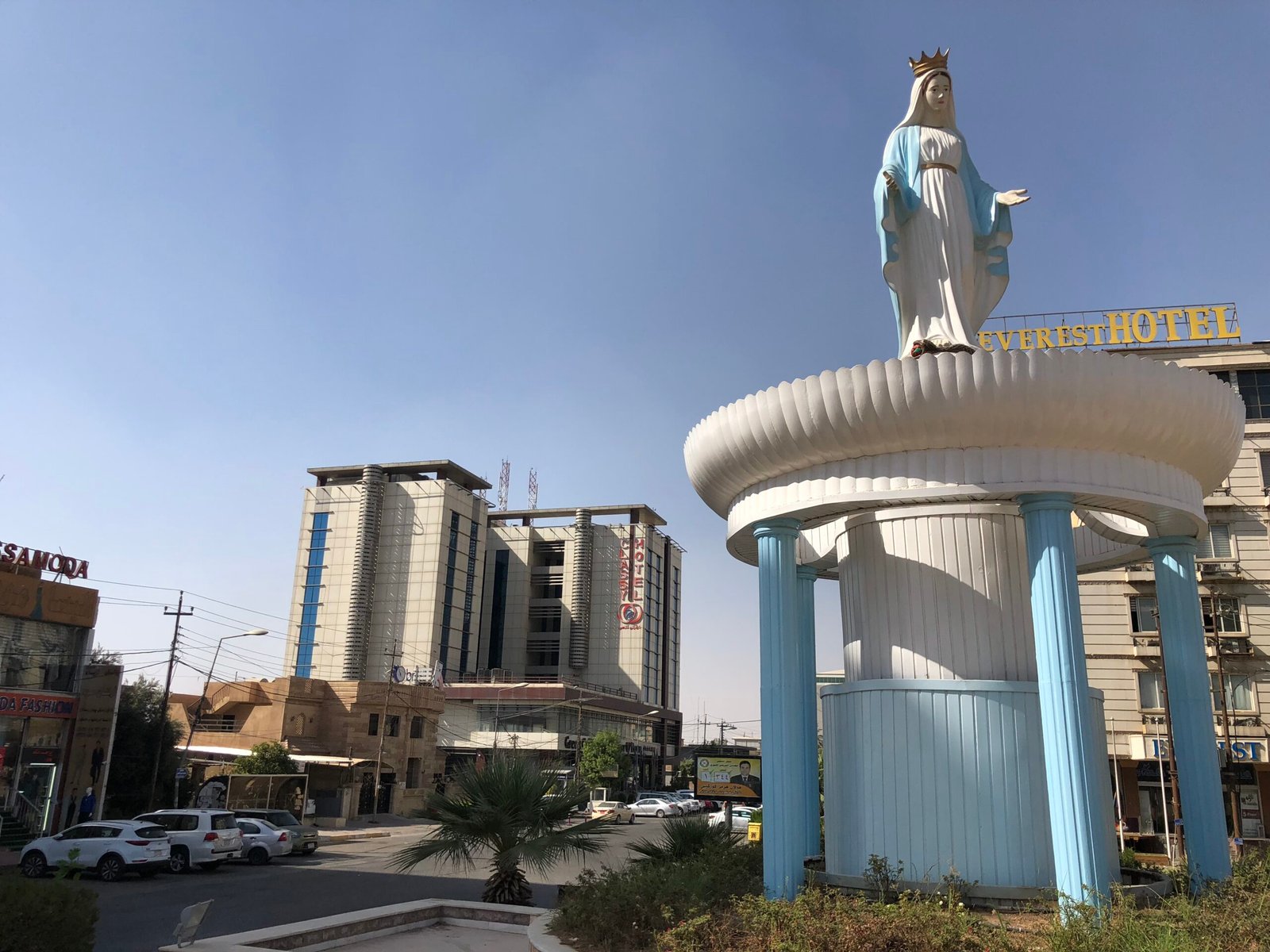Christians in Erbil’s Ankawa District Launch Campaign Against Nightclub and Hotel Expansion

In Ankawa, Erbil’s Christian-majority district, public frustration is mounting over the rapid spread of nightclubs and hotels, amid growing reports of rising prostitution. This has sparked a grassroots campaign to preserve the district’s character and social fabric.
Ankawa holds a special legal status within Erbil that restricts property ownership to Christians, a measure designed to preserve the district’s demographic and cultural character, an arrangement that has also served the KDP’s political interests by showcasing minority rights protections to U.S. and European governments concerned about Iraq’s religious minorities.
The campaign comes amid broader demographic pressures facing the community. The indigenous Christian population of Erbil has declined dramatically, falling by over 53% in a decade, from more than 15,000 native families in 2014 to just 7,000 today, according to the Christian Affairs Director at the KRG’s Ministry of Endowment. This decline challenges the KRG’s portrayal of the Kurdistan Region as a safe haven for Christians.
Many residents, who are predominantly Chaldean and socially conservative, like much of the broader Middle Eastern society, now fear their community is being transformed into a de facto red-light district. Some argue that these developments, whether intentional or not, are perpetuating harmful stereotypes that portray Christians as morally lax—an image they firmly reject as fundamentally at odds with their values and traditions.
Among the campaign’s leading voices is Muna Yaku, a Christian leader and head of the Kurdistan Region’s Independent Human Rights Commission, who has described “the spread of immoral behavior in Ankawa’s streets, especially after midnight on a daily basis, by individuals who are strangers to the area.”
The campaign, titled “Hand in Hand for Ankawa”, has gained momentum amid growing concerns that businessmen connected to the KDP are receiving permits to open even more nightclubs in residential areas. The latest controversy involves a new nightclub project on a residential plot (Plot No. 189/467, area: 220m²) that is entirely surrounded by family homes.
However, it is worth noting that residents’ complaints about the growing construction of nightclubs is not new.
Residents accuse influential figures within the ruling KDP of backing these projects, which they argue are disrupting daily life and eroding Ankawa’s social and demographic identity.
Yaku also points to an unprecedented wave of hotel construction, often in locations that don’t match actual demand and violate existing regulations. Some hotels are built in narrow alleys or dense residential areas, and several are reportedly being used for questionable activities, according to her observations.
Adding to residents’ concerns is noise pollution from nightclubs and event venues that often continues until dawn, preventing patients and students from sleeping and disturbing neighborhood peace.
Local complaints also focus on behavior that conflicts with Ankawa’s traditions, including visitors wearing revealing clothing in public spaces.
The concentration of alcohol shops, massage parlors, and nightclubs, even in residential areas, is creating anxiety among families who say they no longer feel comfortable letting their children move freely through the neighborhood.
Another significant concern is the increasing property acquisition by non-Christians through legal loopholes, a trend residents warn is altering the area’s demographic balance and violating both constitutional protections and local laws.









